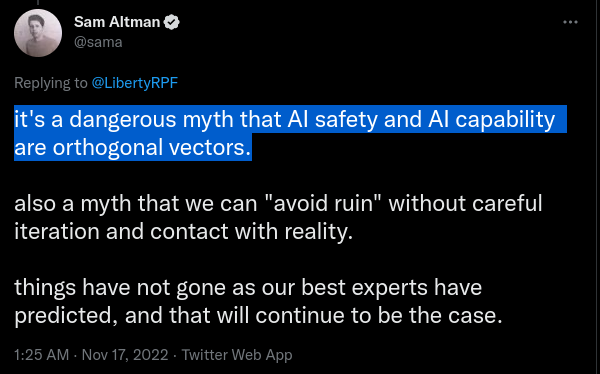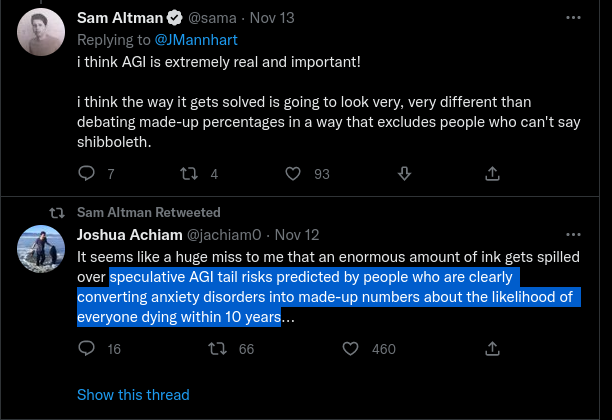All of xarkn's Comments + Replies
You are not directly vouching for anyone here, but as a general point I'd like to argue that friendship is a poor predictor of ethical behavior.
It may be tempting to consider positive social experiences and friendship as evidence that someone behaves generally ethically and with high standards, but when dealing with more capable people, it's not. Maintaining ethical behavior and building trust in low-stakes settings like friendship with few temptations to try and exploit for profit is trivially easy. Especially if you are socially skilled and capable...
Following this tangent, I would say that judging other people is a skill. Some people are better at it, some are worse, and the Dunning–Kruger effect very likely applies. Learning this skill is both explicit (what to notice) and implicit (you get burned -- you learn what to fear).
Examples of explicit lessons:
- Notice how the person treats people other than you -- very likely, they will treat you the same in the future, when they no longer need to impress you. Similarly, if the person tells you to treat other people badly, in the future they will probably do
Instead of creating new ingroups and outgroups and tribal signifiers for enforcing such, we should focus on careful truth-seeking. Some mythologies and terms that engage our more primal instincts can be useful, like when Scott introduced "Moloch", but others are much more likely harmful. "Orthodox vs Reform" seems like a purely harmful one, that is only useful for enforcing further division and tribal warfare.
To summarize, in this post Aaronson,
- Enforces the idea that AI safety is religion.
- Creates new terminology to try and split the field into two ideologi
This is wonderfully written, thank you.
I do worry that "further division and tribal warfare" seems the default, unless there's an active effort at reconciliation.
Sam Altman (CEO of OpenAI) tweets things like:

LessWrong compares OpenAI with Phillip Morris and, in general, seems very critical of OpenAI. "I've seen a lot more public criticism lately".
I doubt that it's actually good to have this strong division, and it might have positive EV to try to move into a more cooperative direction, and try to lower the temperature and divisiveness.
Historically it seems likely that there will be several weeks or even months of warning where a reasonably prepared person can react. What sort of crisis would immediately or surprisingly close all borders? Coronavirus closed many borders, but we had many weeks to react before that. A significant challenge might not be leaving, but being accepted to another country.
Some practical and mostly cost-effective ideas that should increase the speed and odds of escape:
- Connections: Having friends abroad. Having friends you can discuss and analyze the risks with.
- E
inoculating via the GI tract, which may lead to weaker symptoms than the same load in the respiratory system.
A critical care doctor speculated in the This Week in Virology -podcast that getting the virus gastrointestinally might result in worse outcomes. They had observed that in hospitalized patients, those with GI symptoms tended to have worse outcomes, and one theory for why was that the GI system has the widest surface area for the virus to multiply in before spreading to the rest of the body. I don't have the expertise to judge how plausible this is.
Regarding point 2, how sure are you? Why are we even trying to disinfect N95 masks if that's true? I think your point is plausible but the filter technology in these masks isn't entirely trivial. Most filter materials actually depend on a static electric charge in the polypropylene to filter properly. Does the charge actually release the active virus particles after some time, and then you breathe them in? I have no idea. I was already surprised to find out that masks simply aren't just a dense material that filters particles, but a bit more complicated.
I bought a half-mask and several filters almost two months ago, and it's definitely easier and safer for my once-per-week shopping trip than a single use mask. I don't think that it's a particularly effective general solution though, for the following reasons:
1. All of these are sold out. To make more, you need to manufacture both masks and filters.
2. All the replaceable filters are sold out. The filters need to be sequentially rotated or otherwise disinfected.
3. Wearing one for anything more than 30 minutes is still quite awful.
4. Most of them have exhaust valves which still spread the virus to others.
This bolded part is a bit difficult to understand. Or at least I can't understand what exactly is meant by it.
"lightcone" is an obscure term, and even within Less Wrong I don't see why the word is clearer than using "the future" or "the universe". I would not use the term with a lay audience.